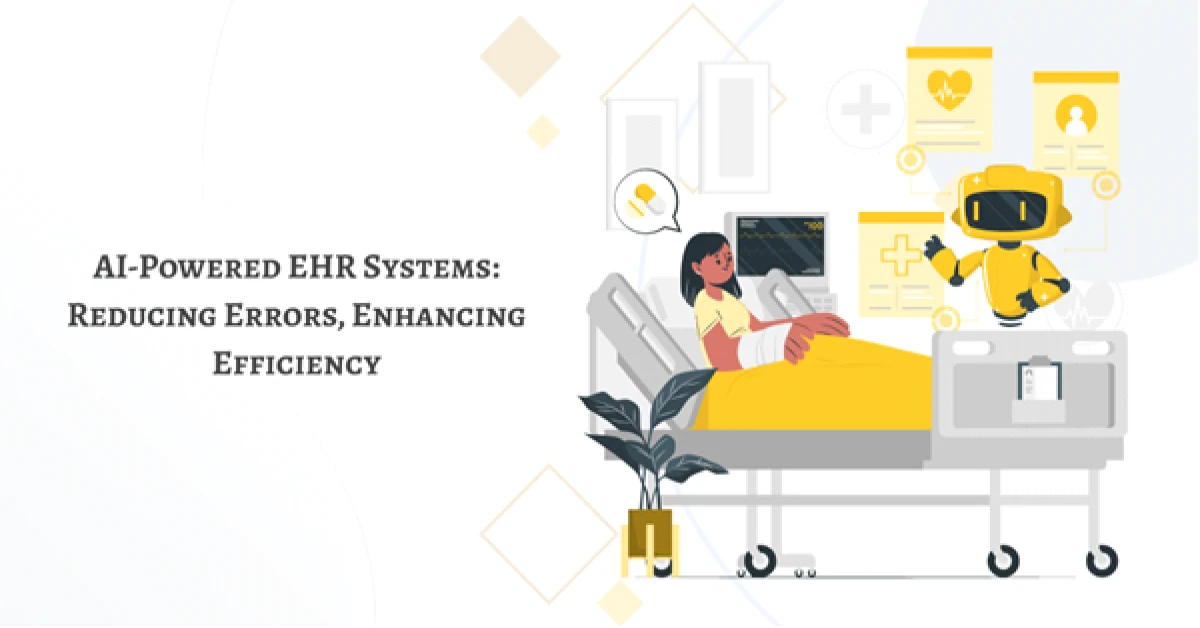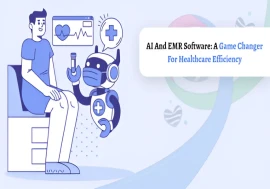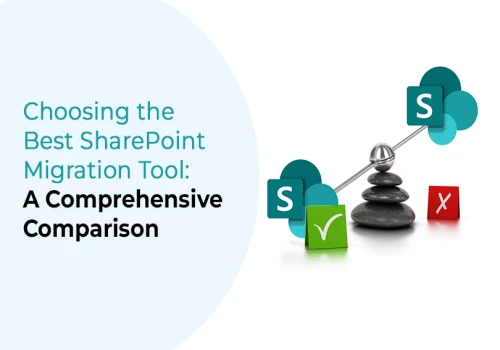
Artificial Intelligence (AI) Electronic Health Records (EHR) software is revolutionizing healthcare by minimizing errors and maximizing efficiency. Through the elimination of manual entry, processing patient records, and real-time analysis, AI minimizes human error possibilities and automates processes. Advanced techniques-based EHR software increases diagnostic accuracy, streamlines treatment plans, and provides better patient care, and makes healthcare systems efficient, reliable, and data-driven.
Learning About AI-Powered EHR Systems
AI Electronic Health Record System Software is revolutionizing the healthcare sector by adding artificial intelligence to provide effective processes, higher accuracy, and enhanced patient care. Conventional EHR Software holds and tracks patient information, but AI elevates it to the next level by providing automated processes, processing massive medical data, and providing predictive data.
One of the most significant advantages of AI in the development of EHR applications is that AI is able to eliminate the administrative burden on healthcare workers. Voice dictation and NLP with AI capabilities automate reporting by clinicians so that doctors don't have to spend time performing administrative tasks when they could be spending that time treating patients instead. Machine learning algorithms also help with disease diagnosis, anomaly detection, and personally tailored treatment planning suggestions based on patient history.
Additionally, AI EHR software enhances interoperability, with the data being easily transferred between distinct healthcare systems. This improves coordination of medical staff so that miscommunication-induced errors are circumvented or crucial information missed is bypassed. Predictive analytics by AI also assist in detecting patient risk, whereby intervention and good quality treatment is provided on time.
With the incorporation of AI in electronic health record system software, clinics and healthcare centers can attain greater efficiency, improved patient safety, and improved decision-making. Use of AI technology in identifying the future of healthcare will be more inevitable with the increased developments of AI.
Decreasing Errors with AI in EHR Software
Artificial intelligence software for EHR is transforming healthcare to a great extent by minimizing medical documentation, diagnosis, and treatment errors significantly. Man error in data input, misdiagnosis, and the dispensation of medicines to patients are deadly results of an over-speed healthcare system. AI adds accuracy and reliability to EHR software India so much so that healthcare specialists are able to provide safer and improved patient care.
One of the best ways through which AI minimizes errors in Electronic Health Records software is speech recognition and automated entry. Physicians can dictate notes with the help of AI-based voice recognition, thus minimizing transcription errors. Natural language processing (NLP) avoids errors in patient information from being coded and documented incorrectly.
AI is also accountable for enhanced diagnostic precision. Machine learning models sort through gigantic health information to identify patterns and signal possible misdiagnosis. These smart systems can cross-matching symptoms, history, and lab tests to support physicians in making informative decisions.
In drug management, AI-powered EHR software India avoids prescribing drugs through cross-matching the drug interaction, allergies, and dosing tendencies. Anticipatory response averts patient damage and reduces side effects of the drugs.
Furthermore, AI EMR software development enables higher interoperability, whereby patient records get updated and become accessible in any healthcare system round the clock. This seamless exchange of data lowers the chances of errors due to incomplete or stale medical records, thus enhancing health care efficiency as well as patients' outcomes.
Advantages of AI-Powered EHR Systems
AI-based EHR software is revolutionizing the health care industry into an effective, error-free, and improved patient-care industry. Artificial intelligence, by its implementation, enables clinics and hospitals to benefit from improved data analysis, automation, and predictive analytics. The following are the major Advantages of AI-based EHR systems:
1. Improved Accuracy and Decreased Errors
AI reduces human errors in data entry, diagnosis, and treatment planning.
Industry-leading EHR software offers computerized reminders to prevent prescription errors and drug interactions.
AI-powered NLP ensures accurate medical documentation.
2. Increased Efficiency and Workflow Automation
Administrative tasks such as scheduling, billing, and claim processing are managed by AI.
Speech recognition software enables physicians to dictate reports without consuming much time from typing.
AI-powered EHR software India automates tasks so that health care providers can spend more time on patient care.
3. Next-Generation Predictive Analytics for Better Decision-Making
AI examines enormous amounts of data to identify disease patterns and forecast patient risk.
Physicians utilize machine learning to diagnose diseases earlier and more precisely.
Predictive data supports early diagnosis and tailored treatment protocols.
4. Data Interoperability and Availability
AI makes it easy to integrate various healthcare systems for better data sharing.
Cloud-based best EHR software provides patients' records at fingertips anywhere.
Enhancing Efficiency in Healthcare
Electronic Health Records Systems powered by AI are transforming healthcare with streamlined work processes, eased administrative load, and enhanced patient care. Clinics and hospitals can enhance efficiency, achieve maximum utilization of resources, and avoid wastage due to manual efforts through AI.
Perhaps the strongest means by which AI boosts productivity is through the automation of back-office functions. AI schedules appointments automatically, codes bills and medications automatically, and minimizes paperwork so that practitioners have more time with patients. Speech recognition and NLP also enable physicians to dictate reports, maintaining documentation time low while boosting accuracy.
AI is also essential in clinical decision support. Through the handling of large volumes of data, AI helps doctors to diagnose and treat patients fast and accurately using real-time patient information. This means enhanced clinical workflow and enhanced care delivery.
Also, Artificial Intelligence-based Electronic Health Records Systems make such a level of interoperability available that the information travels effortlessly between the majority of healthcare practitioners. This eliminates duplicate tests, minimizes the chances of drugs being incorrectly used, enables seamless coordination of specialists, and therefore delivers quality and cost-efficient health care services.
Increased productivity, shorter waiting period for treatment, and overall improvement in care of patients can be made available at hospitals with AI.
Conclusion
AI-based EHR software is revolutionizing healthcare through decreased errors and increased efficiency. By applying automated administrative processes, increased diagnosis rates, and transferring information smoothly, AI-based Electronic Health Records Systems maximize performance and increase the quality of patient care. With every new day bringing more advanced technology, AI usage in EHR software will fuel the push towards innovation, offering quicker, safer, and more efficient healthcare.






